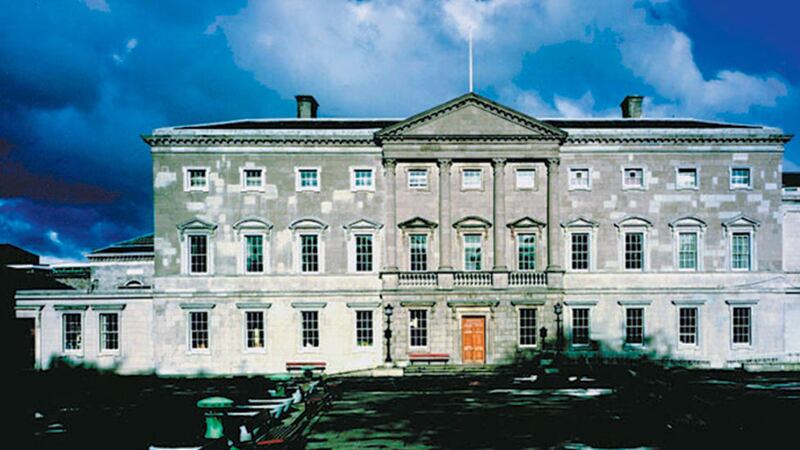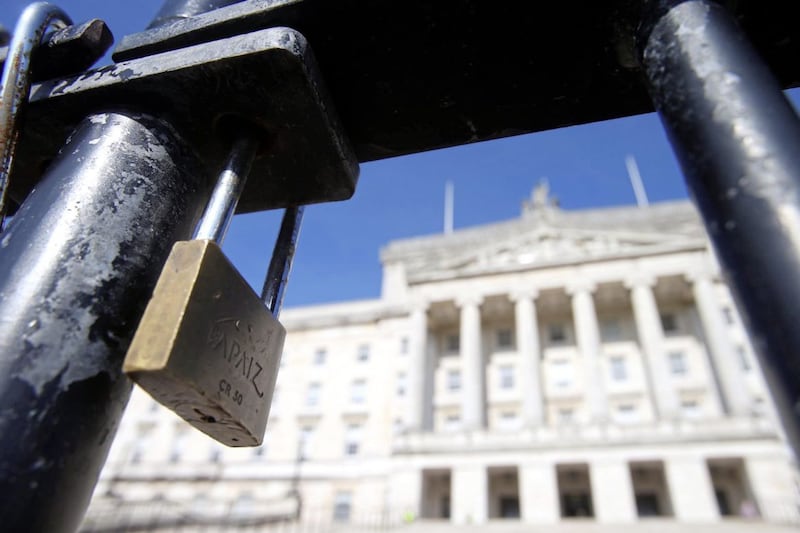WE may not have constitutional unity on this island but in political terms it is a single playing-field, with two games taking place at different ends of the pitch.
The main reason is that Sinn Féin has a team in both matches.
Let’s put the Stormont shenanigans to one side for the moment and look at the position in Dáil Éireann, where the party has gone from having a single, solitary member back in 1997 to the current batch of 23 TDs out of a total membership of 158. That’s about the same as it might have after a general election in the north, according to some estimates, although the total in the latter case would be only 90 MLAs.
Even their squad of vociferous critics in the south would have to concede that the “Shinners” are major players at Leinster House. Mary Lou McDonald is one of the most high-profile politicians on the current scene. She started out in Fianna Fáil and they were fools not to try to keep her. The middle classes still harbour serious reservations about Sinn Féin and, if the party is ever to make a breakthrough in that quarter, Mary Lou will be the cutting edge. Hailing from the leafy Dublin suburb of Rathgar, educated at a fee-paying secondary school and later in Trinity College Dublin, she is self-assured and highly-articulate. Deputy McDonald gives no quarter in the parliamentary battle: the word that comes to mind is “formidable” and she would give the likes of the late Maggie Thatcher or, come to that, Theresa May, a run for their money; she has a sense of humour to boot.
Finance spokesman Pearse Doherty is another politician regarded, even by his rivals in the Dáil, as an impressive performer. The Donegal man has a strong grasp of the issues, speaks well and tackles government representatives in a self-confident manner. The word that comes to mind in his case is “relentless”.
If they were in any other established party in the Dáil, Deputies McDonald and Doherty would inevitably become government ministers at an early stage. Other likely contenders would include Dublin TDs Eoin Ó Broin and Louise O’Reilly, Meath Deputy Peadar Tóibín and David Cullinane from Waterford.
But despite the remarkable increase in support for Sinn Féin since the Good Friday Agreement, the prospect of becoming the majority - or at least the largest - party in the Dáil in the next ten years still seems remote. A firestorm of allegations about the role of party leader Gerry Adams in the Troubles erupts on a regular basis: persuading him to step down would help win middle-class votes but there is also a grassroots republican element in the electorate that would disapprove.
The only realistic prospect of power in the short-to-medium term is as a minority coalition partner. A motion at the 2015 ard fheis in Derry ruled out participation in a government led by Fianna Fáil or Fine Gael but this could perhaps be superseded at a future party conference if there was a good enough offer on the table. Fine Gael Chief Whip, Regina Doherty, put the cat among the pigeons recently when the Sunday Independent quoted her as saying there were “fabulous” people in Sinn Féin and she would “of course” serve in government with them.
Historically, the example of the Irish Labour Party shows that you generally lose support after a term as a junior coalition partner but with the passage of time the voters tend to come back, sometimes in greater numbers.
It’s a no-brainer that Sinn Féin in government, north and south, could generate a new political dynamic on the island. Minority partners in Dublin administrations tend to get the foreign affairs portfolio, indeed Seán MacBride of Clann na Poblachta, who held the job from 1948 to ’51, was a former IRA chief of staff.
A Sinn Féin minister for foreign affairs would of course be dealing with the north on a daily basis. You could well have a situation where Sinn Féin members of the cabinet in the south would be meeting Sinn Fein ministers from the Stormont executive on cross-border issues. It would be naïve to assume that this would herald a united Ireland in the near future but it would certainly give new life and fresh impetus to north-south relations and Irish republicanism.
In any cross-party arrangement you have to stand your ground and let your partners know you are not a pushover but, if one may deploy a Biblical quotation formerly cited in the context of decommissioning by Gerry Adams, there is “a time to break down, and a time to build up”. In the words associated with former Dublin minister Mary Harney: “The worst day in government is better than the best day in opposition.”
@ddebreadun








